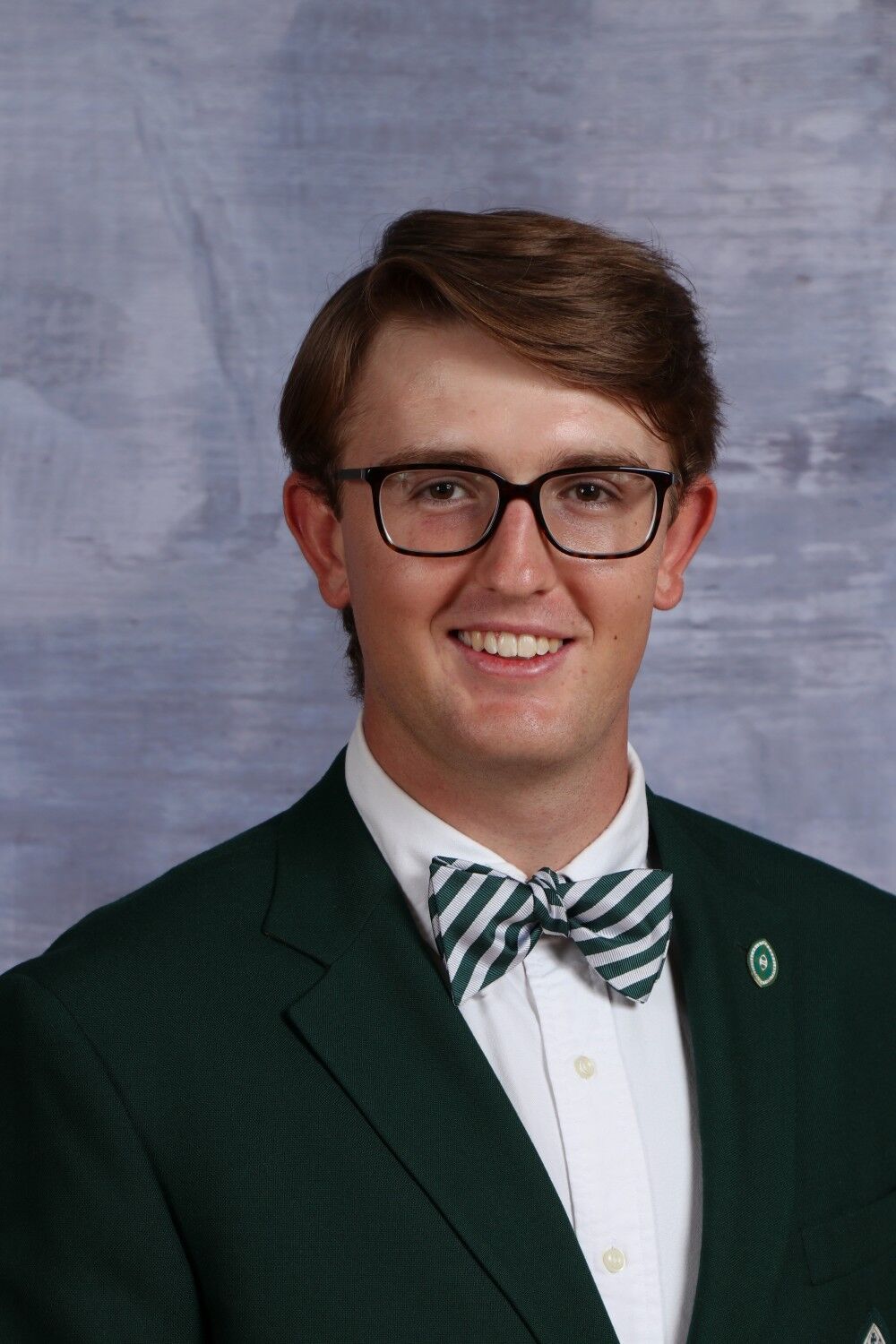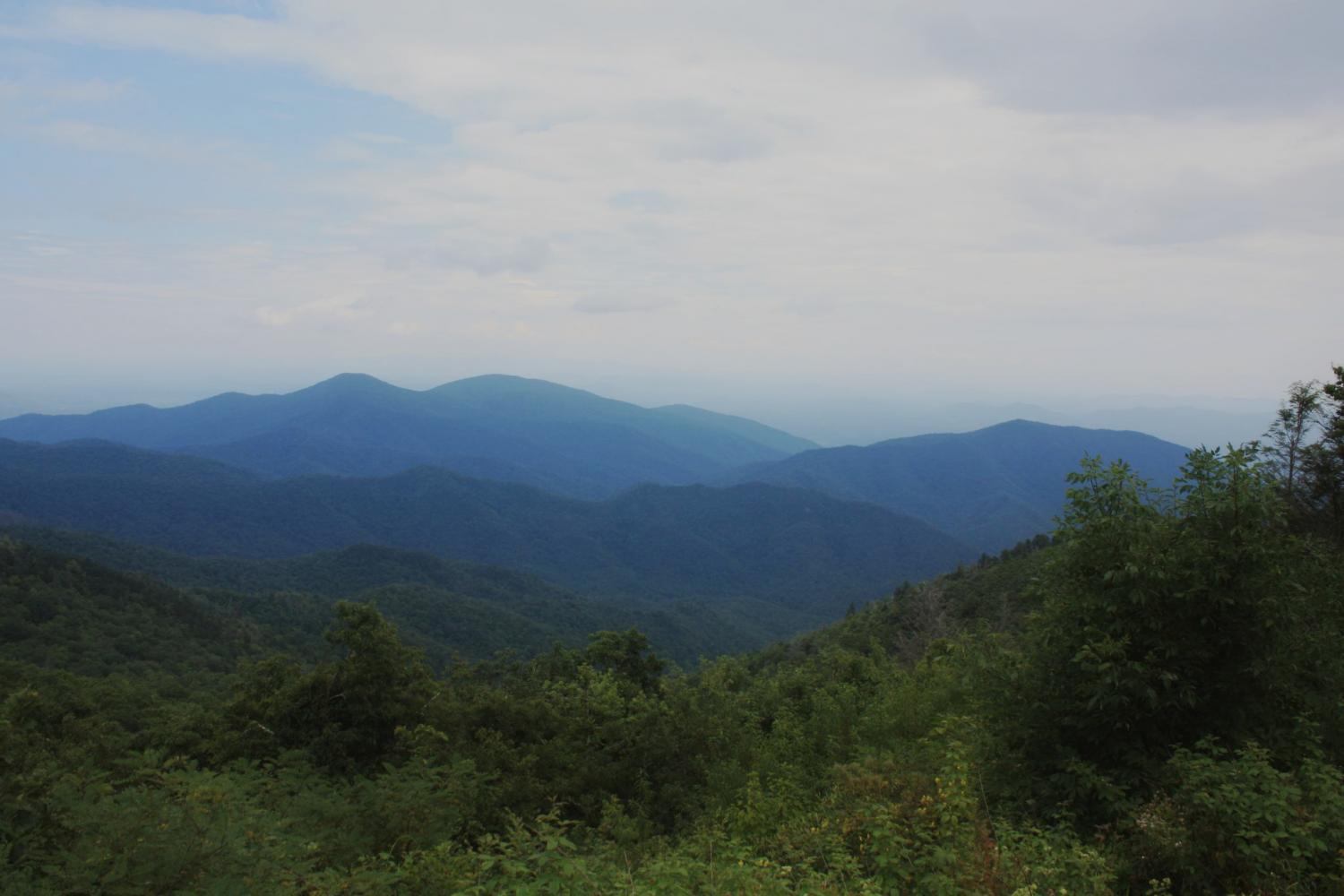Mac Gortney '19 Wins Gold Medal in National Writing Competition
Mac Gortney '19 wrote about what he knows.
The work is not glamorous. But every summer, Mac finds meaning in the sweat and toil he puts into Asheville's Green Hills Cemetery, which his family owns. This labor was the inspiration for "Gravedigger," a personal essay which has earned the Christ School senior a Gold Medal in the Scholastic Art & Writing Awards national competition.
As a medalist, Mac has been invited to New York City for an awards ceremony in June. English teacher Emily Pulsifer said that Mac is Christ School's first national Gold Medal winner in her 10 years with the faculty.
"It's pretty cool to be recognized. That job has taught me a bunch of lessons," Mac said.
"I really only wrote the paper for college admissions. Writing has never really been my thing like I feel it is for a bunch of other kids. Mrs. Pulsifer was the one who saw the potential and told me it'd be a good idea to submit it, and I ended up getting the award."
After graduation, Mac will attend Sewanee (Tenn.): The University of the South and be part of the Tigers' baseball program. He is a big reason why Christ School has state-championship aspirations this spring – Mac was named the co-Cy Young award winner at last week's Florida League High School Invitational in Sanford, Fla.
Outside of sports, Mac holds down the Senior Leadership position as Liaison to Christ School's Admissions Office and is part of the Honor Council. He is a leader with the local chapter of Young Life.
Following is the text of Mac's winning essay:
"I am a gravedigger.
Once my dad gets the call, we go find the plot and begin to dig. It takes two things to dig the hole: a spade for the shape and a red-handled shovel for the depth. I've dug enough graves at this point that I know the dimensions without a frame — approximately 12 inches by 12 inches. We first cut out the sod, so we can keep it to put back on top. The initial stick with the spade tells us a lot about how long it will take us to complete the hole. On 80 acres of rolling hills in the Blue Ridge Mountains, you can get many different types of dirt. Down by the pond, the dirt is softer and more fertile, which translates to 15 or 20 minutes. If we're in the section we call "The Upper 40" where the soil is dry and compacted, it'll take us around 30 or 40 minutes. The dirt up here isn't as soft because the rain doesn't soak in as quickly. Digging isn't always straightforward. Sometimes the dirt is hard, or there are rocks we have to remove, or we are near a tree and we have to cut past roots. Removing these obstacles, we have to keep the shape of the hole — that's the spade's second job. To see if I'm done, I step in the hole. If I am knee deep, I am done digging. I then pull the dirt mat out of the family's view for when they have their service. Finally, I place a wooden box over the hole and drape a turf mat over the box so it looks natural. Then I step away.
For the past six summers, I have worked in my family's cemetery. Over 23,000 people have been laid to rest since my great-grandfather founded the cemetery in the early 1900s. My job seems pretty simple: I mow, weed-eat, and dig graves. Ashes go in these holes — just pulverized bone fragments — but they're also the remnants of a life. To their loved ones, these ashes tell a story of a life once lived. A life full of possible success, or sickness, or joy, or depression, or an ending that came too soon. The story that lies within the urn is one I may never know, but I feel the responsibility of helping it conclude with grace.
I am not eager to talk about myself, but I'm ready to do a dirty job. It's a quiet job, too. One that takes time, but it needs to be done right. So, I do it carefully. The details matter, not because anyone's watching, but because the grave I dig will hold somebody's loved one. Helping others makes me happy and doing so when people are in a vulnerable state makes it more rewarding.
When the family is gone, I step back into the hole to make sure no dirt has fallen in. I then rest the urn in the hole and begin to cover until it is no longer in sight. I cover the grave.
I tamp the sod, throw the spade and shovel on my shoulders, and walk back to the shed.
Everyone needs a gravedigger."






